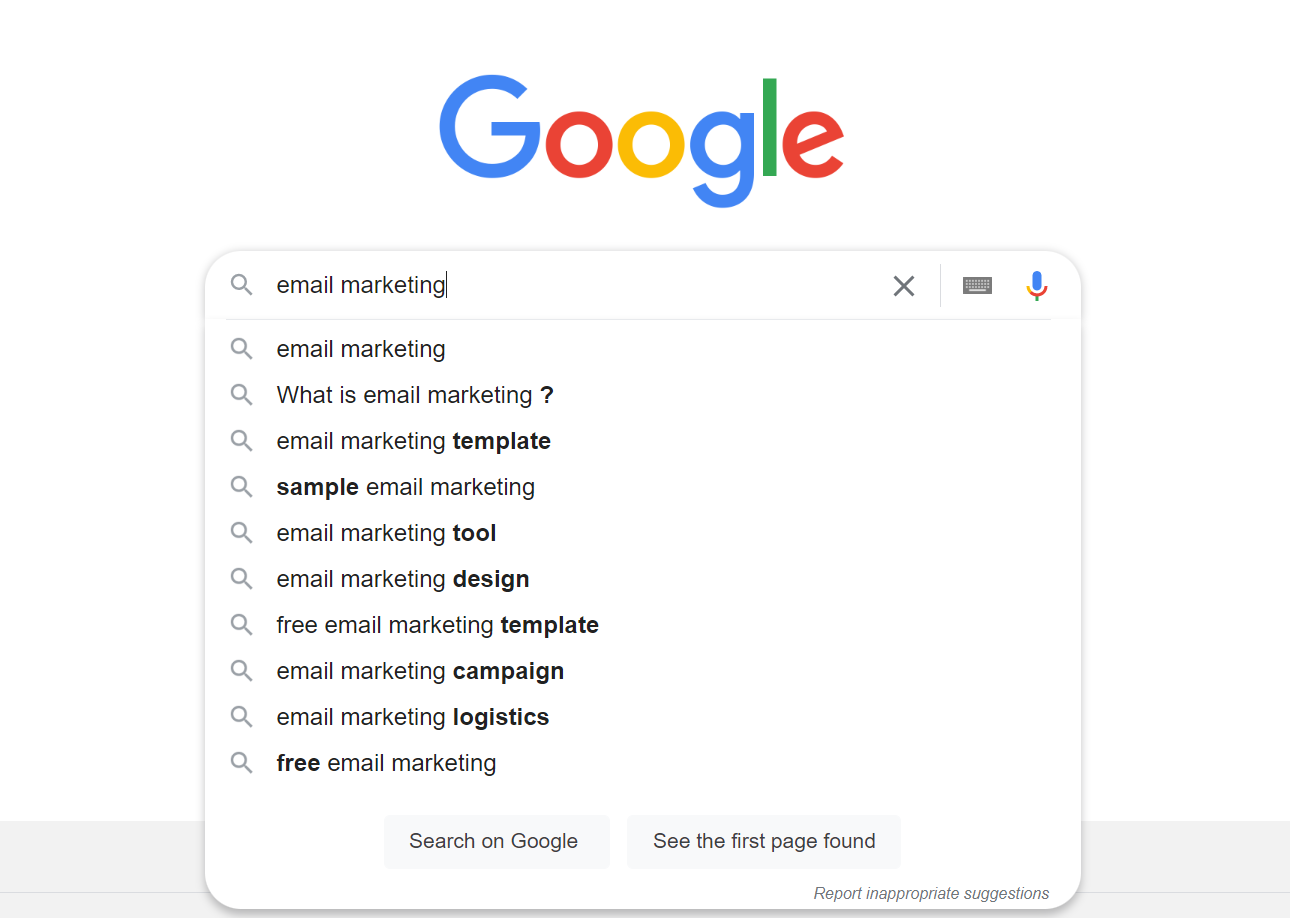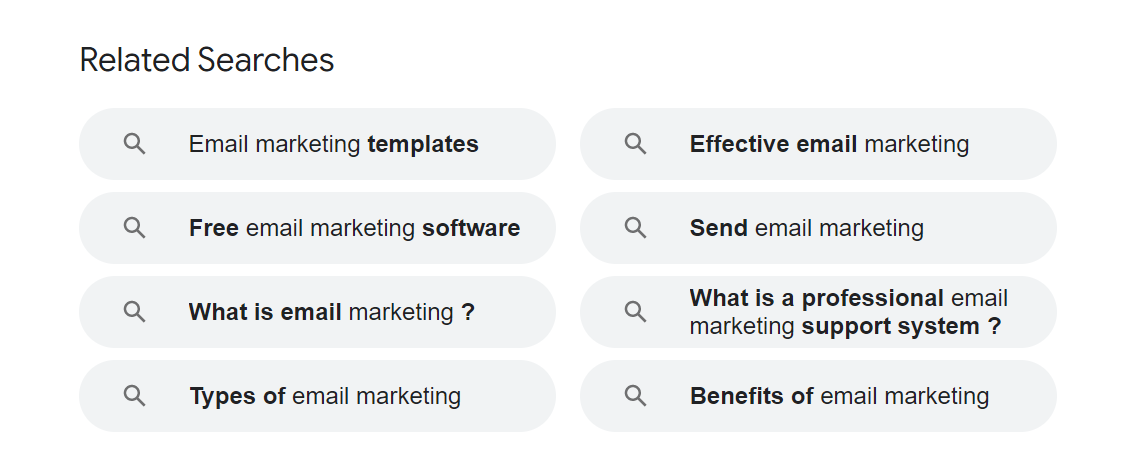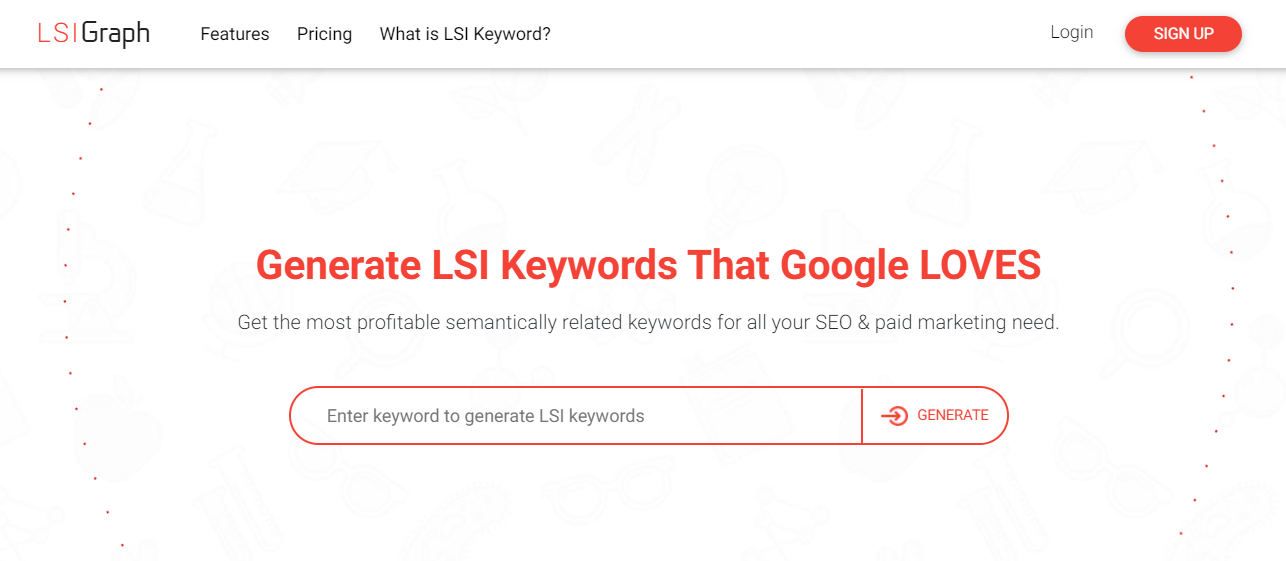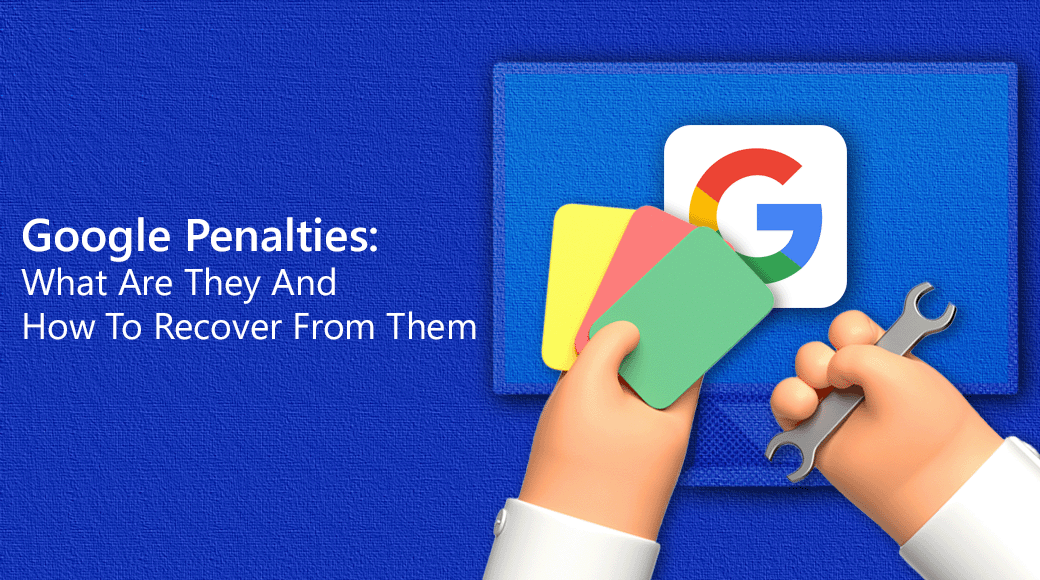High-quality content has become essential for Google to drive traffic to your site. If you want to rank on Google, you need to stop focusing on individual keywords but the context of producing good quality content.
So, to boost your content contextuality and search visibility, all digital marketers need to know about LSI keywords. This article will highlight what you need to know about LSI keywords, how to find them, and how to use them.
What Are LSI Keywords?
LSI keywords stand for Latent Semantic Indexing keywords. They are search-related terms, or in other words, they fit into the same topic as the primary keyword.
The main focus of LSI keywords is context, and they help the search engine identify articles relevant to a user's search-related terms.
While LSI keywords are semantic keywords, they are not synonyms of the primary keyword. Viewing them as conceptually related terms to primary keywords is a better way of understanding them. If the primary keyword is “cars,” possible LSI keywords for cars might include “engine,” “gas,” and “stick shift.”
Examples of LSI Keywords
At first, it can be a bit overwhelming to understand what LSI keywords are and how they fit into SEO. However, after reading through a few of these examples of primary keywords and LSI keywords, this might be easier to understand:
-
If the primary keyword is “soccer,” possible LSI keywords might include “goal,” “soccer ball,” and “goalkeeper.”
-
If the primary keyword is “computers,” possible LSI keywords might include “software,” “hardware,” and “CPU.”
-
If the primary keyword is “coffee,” possible LSI keywords might include “brew,” “caffeine,” and “espresso.”

How Do LSI Keywords Work?
Now that you know what LSI keywords are, you may be wondering exactly how they work and how computers are able to understand them.
Unlike humans, computers would not be able to know that the words “car,” “coffee,” and “caffeine” are semantically related on their own. After all, it is not as simple as matching primary keywords but understanding the context of an article.
In order for search engines to have this ability, a mathematical practice called latent semantic analysis is used. It allows programs to collect information about specific key terms by using singular value decomposition. This complex mathematical formula enables search engines to determine relationships between semantically related words.
However, this single value decomposition not only allows search engines to identify these correlations but also gives them the ability to better understand the context of terms.
LSI Keywords and Google
The main goal of any keyword researching process and producing content is to make sure you rank well on Google to reach your target audience. And this is why it is crucial to take a deeper look into LSI keywords and their relation to Google itself.
One of the most popular questions regarding LSI keywords and Google is whether the global search engine uses an algorithm to identify LSI keywords. A representative from Google answered this question in 2019 via Twitter: “There’s no such thing as LSI keywords – anyone who’s telling you otherwise is mistaken, sorry.”
While Google has confirmed that they do not use algorithms for LSI keywords, it is a safe bet to believe that the world’s biggest search engine has advanced practices in understanding the context of articles. Without this technology, it would be hard for Google to produce accurate search results for its users.
It is more likely that Google has a practice that allows this search engine to go through the content of a page as a whole and understand its context - allowing it to match it to relevant pages.
Despite Google confirming that they do not use any LSI keyword algorithms, this has not made LSI keywords any less prevalent in the world of SEO content strategy. Using related keywords in your content helps comprehensively cover your focus topic, increasing your chances of ranking higher on SERP.
Why You Should Use LSI Keywords
While it makes sense to include LSI keywords on a page because they are words that relate to and fit the context of the article, however, will one benefit from having a few LSI keywords? To answer this, here is a list of the pros of using LSI keywords on a page:
-
Boost search engine rankings: Including LSI keywords on your page increases the chances of search engines understanding the context of your page, which will increase the chances of your page ranking higher on a search engine.
-
Increase chances of reaching the target audience: LSI keywords are words that relate to the search terms used to research a specific topic. This means that if your page contains an LSI keyword relevant to what a user is searching, your page has a higher chance of appearing in the result of the user’s search.
-
Improve content quality: LSI keywords elaborate on the context and enhance the page's content as a whole. When used correctly, these keywords can make it easier for the reader to understand the page.
How to Find LSI Keywords
Learning how to find LSI keywords can be overwhelming. After all, how will you know which terms are identified as LSI keywords? Luckily, it’s not a complicated process.
To compile a list of LSI keywords, you will need to use certain tools to help identify which words are considered LSI for specific topics. Here is a list recommended for you:
5 Tools to Find LSI Keywords
Google Autocomplete Suggestions
Google’s autocomplete suggestion search feature is not only great for predicting what users could be searching but also one of the easiest ways to find LSI keywords. This feature is automatic and requires a little work while being quite effective in generating possible LSI keywords for topics.
All you have to do is open Google and enter the primary keyword in the search bar. You will then notice a drop-down list of your primary keyword next to words that have been bolded out. The words that have been bolded out are the LSI keywords.

Google’s People Also Ask
While the primary purpose of this Google’s People Also Ask feature is to expand the search of users and make it easier for them to access possible questions they might be wondering. This is another excellent free tool made available by Google that you can use to help find LSI keywords for a specific topic. What’s great about using this feature is that it opens your LSI keyword list while remaining relevant to the primary keyword.
To use this feature, you must enter your primary keyword in the search bar. Once the search results appear, you will need to scroll down until you see the People Also Ask section. You can then click the questions most relevant to the topic you are writing about and include them in your LSI keywords list.
Google Related Searches
Another great Google feature commonly used for finding LSI keywords is the search engine, Related Searches features. Even though this feature's primary purpose is to expand users’ searches and help them find related topics, it is just as helpful to help users find LSI keywords for specific topics.
To access this feature, open Google and enter your primary keyword in the search bar. When the results appear, scroll to the bottom of the first results page and find the Related Searches. You will notice that the primary keyword is next to a bolded-out word. Add the bolded word to your LSI keywords list.

WriterZen
WriterZen is a popular simplified SEO workflow. You can start by clicking the Keyword Explorer button, entering your primary keyword, and identifying LSI keywords. A good idea is to adjust the location where you are writing articles.
Once you click the Search button, a list of results of popular keywords will appear. Next, you need to look under the “Also search for” section and include relevant keywords that you will be using in your article.
LSI Graph
LSI Graph can generate LSI keywords very quickly. You only need to type in your seed keyword, hit the ‘Generate’ button, and this LSI Keyword Generator will provide you with a list of LSI terms.

Tips When Using LSI Keywords for SEO
Pay Attention to User Experience
If you want to write a good article that ranks high on Google keeping user experience in mind is essential. This also includes when making use of LSI keywords on your page. You want to ensure you do not overuse LSI keywords because this will make the article repetitive for the readers and will not provide a good user experience.
A good idea is to work out a ratio of how many LSI keywords you should be used in each article. Doing this will make you less likely to have a string of LSI keywords in one sentence.
Make Sure LSI Keywords Fit The Context
Articles need to be easy to read; keeping the article conversational is the best way to ensure this happens. The LSI keywords need to follow and fit your page’s context, and the last thing a reader wants is to read a sentence that does not make sense because you have included an irrelevant LSI keyword.
Final Thoughts
LSI keywords are keywords that are search-related terms of a primary keyword. LSI keywords focus on the context of a page rather than a specific word itself, making it possible for search engines to understand the relationship between search-related terms.
While Google claims their search engine LSI keywords do not exist on their platform, LSI keywords still enhance your content quality and help your articles rank on Google. Finding LSI keywords is quite a simple process; many tools are available to help make it easy.
















